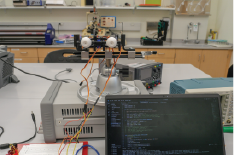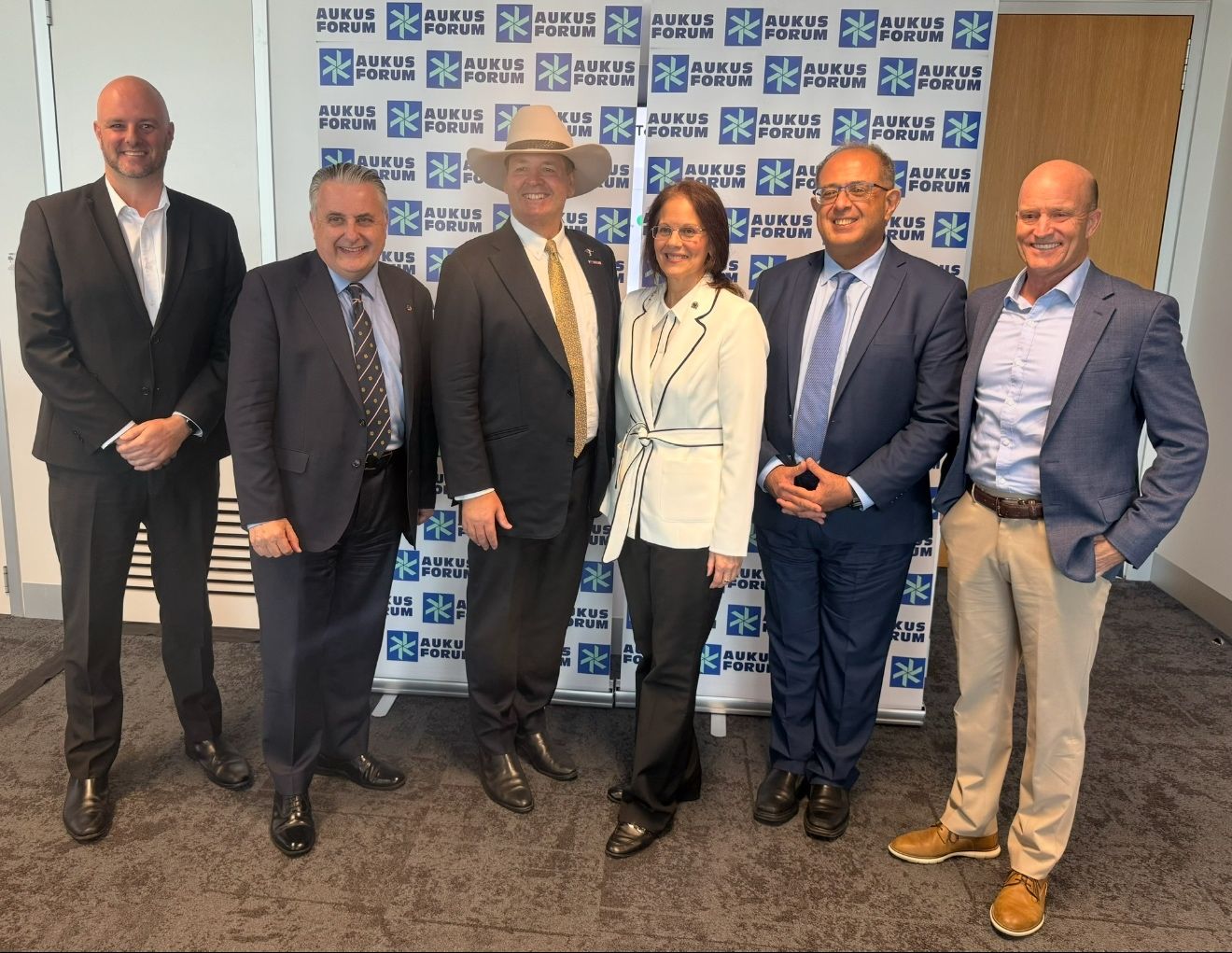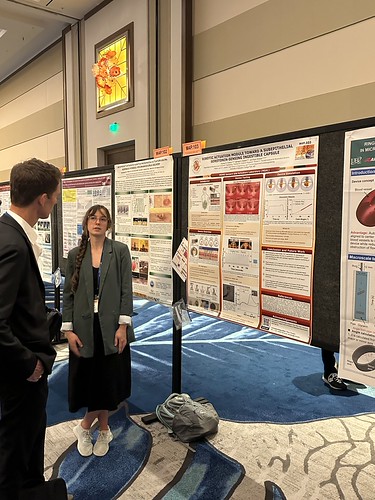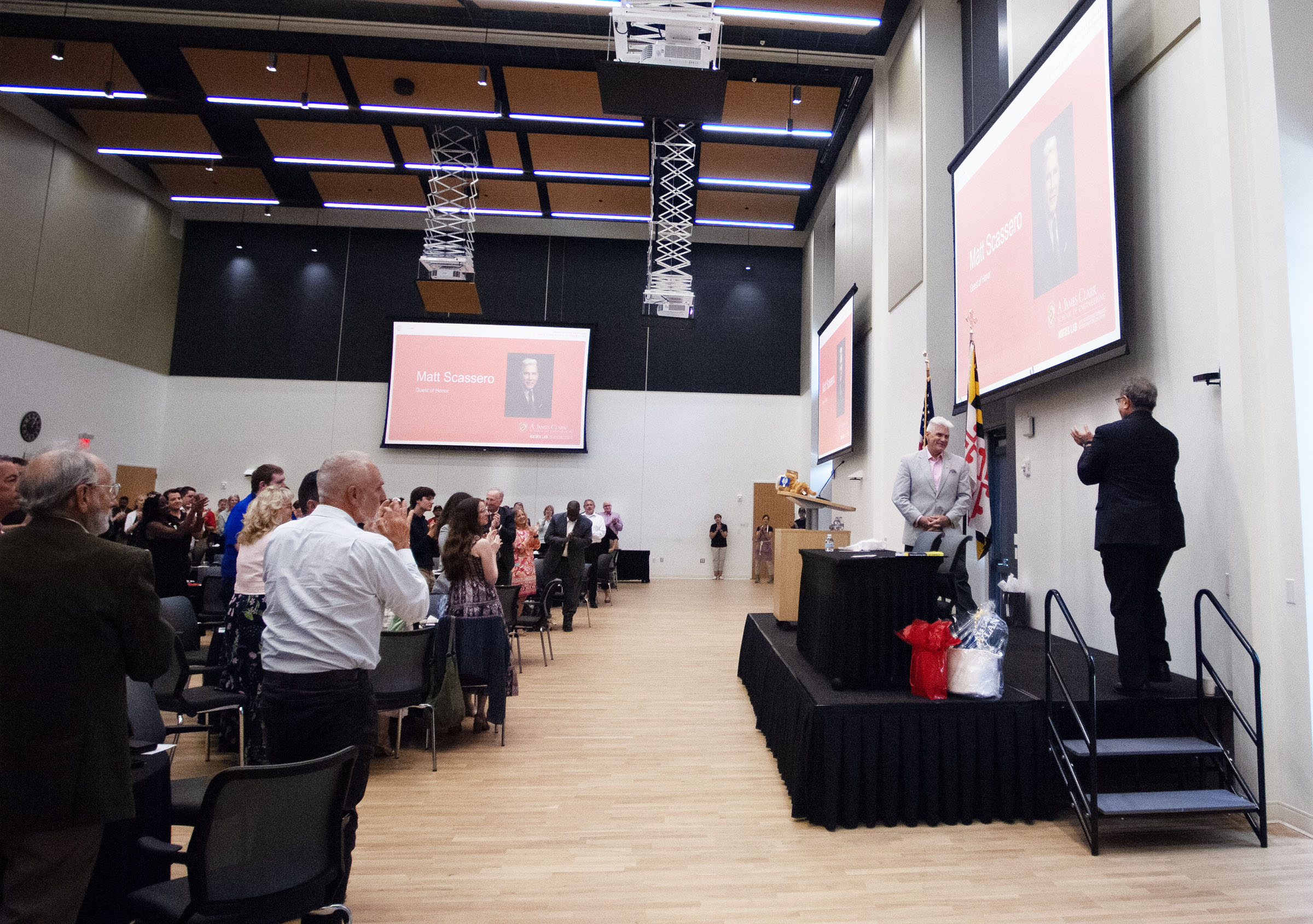News Story
First Evening@SMART Promotes Innovation and Collaboration
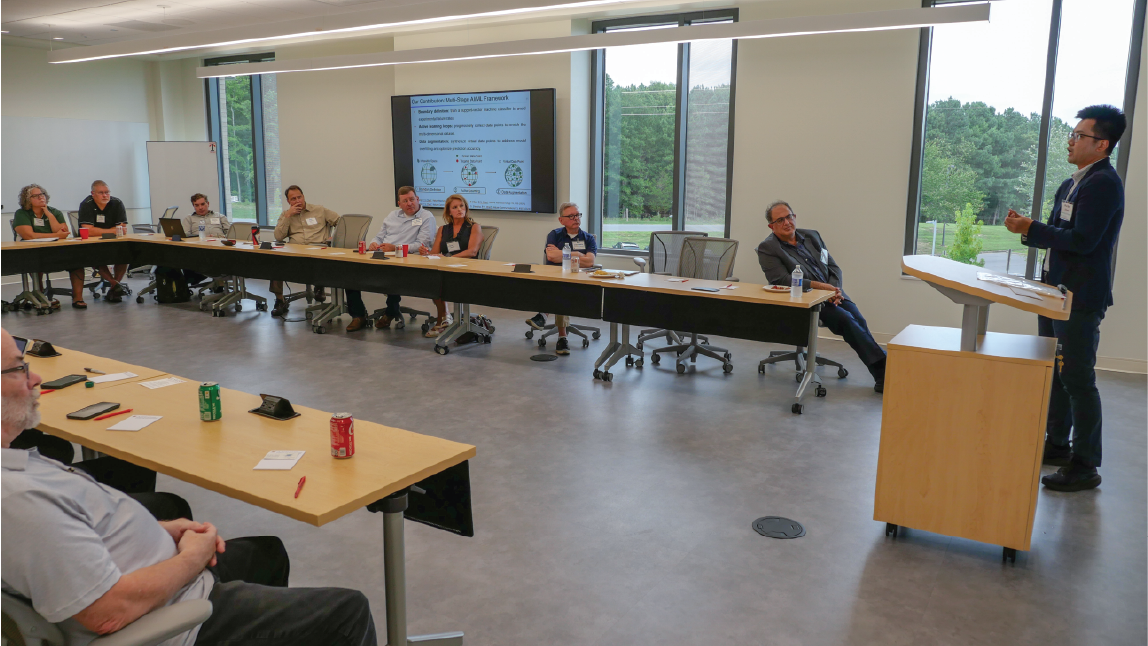
Dr. Po-Yen Chen, an assistant professor with the Department of Chemical and Biomolecular Engineering at UMD, delivers Evening@SMART presentation
Experts and leaders gathered for a presentation on machine learning (ML) and collaborative robotics that was followed by an interactive discussion period.
The event was hosted by the MATRIX Lab and held at the USMSM SMART Building on August 7. It was the first lecture of the “Evening@SMART” series, a lineup of presentations focused on technical topics and policy implications related to autonomy and artificial intelligence (AI). Goals of the series include advancing research and innovation, promoting interdisciplinary collaboration, sparking growth through dialogue, and creating connections.
The series comes at a pivotal time where autonomy and autonomous systems are increasingly impacting our everyday lives, requiring us to trust them. Facilitating discussions around these topics is critical for figuring out how to advance these technologies to benefit our future and creating policies and guidance that keep them within our control and expectations.
“Evening@SMART is more than a series of ‘tech talks’ -- it’s a way to create a culture of innovative thinking,” said Dr. Reza Ghodssi, the MATRIX Lab Executive Director of Research and Innovation. “Hearing everyone’s diverse thoughts and perspectives sparks creativity and helps our participants find inspired solutions to challenging problems. In this way it creates and reinforces our unique ecosystem.”
Dr. Po-Yen Chen, an assistant professor with the Department of Chemical and Biomolecular Engineering at UMD, delivered the presentation. “Machine Intelligence-Driven Development in Soft Robotic Sensors and Sustainable Materials” focused on combining ML and collaborative robotics. Dr. Chen discussed the concepts of wearable sensor modules, strain sensors, and biodegradable plastic substitutes.
Nonbiodegradable plastics pollute the earth and pose a unique threat, especially to our oceans and fish populations. Traditional ways to find plastic substitutes require a lot of time and effort. A workflow integrating robotic technologies and ML can accelerate the discovery of all-natural substitutes and reduce research and labor costs. Conventional methods of creating ML framework can make it challenging to build highly accurate prediction models. Dr. Chen’s multistage method of creating framework collects more data points and increases accuracy. The ultimate goal is to use ML to automatically design biodegradable plastic substitutes. That framework can also be applied as rigid devices evolve into flexible and ultimately stretchable devices.
“I greatly appreciated the opportunity to present my research in a collaborative space,” Dr. Chen said. “It allowed me to share my findings and receive valuable feedback from a diverse group, which advances my work and broadens my perspective.”
The Evening@SMART series continues on Wednesday, September 4, 2024, with “Reconstructing Reality: From Physical World to Virtual Environments.” Dr. Ming Lin with UMD’s Department of Computer Science will be presenting recent advances in data-driven modeling that tackle challenging problems not previously addressed. To learn more click here, and to register click here.
If you have suggestions or ideas for future Evening@SMART events, please email us at matrix@umd.edu.
Published August 12, 2024
